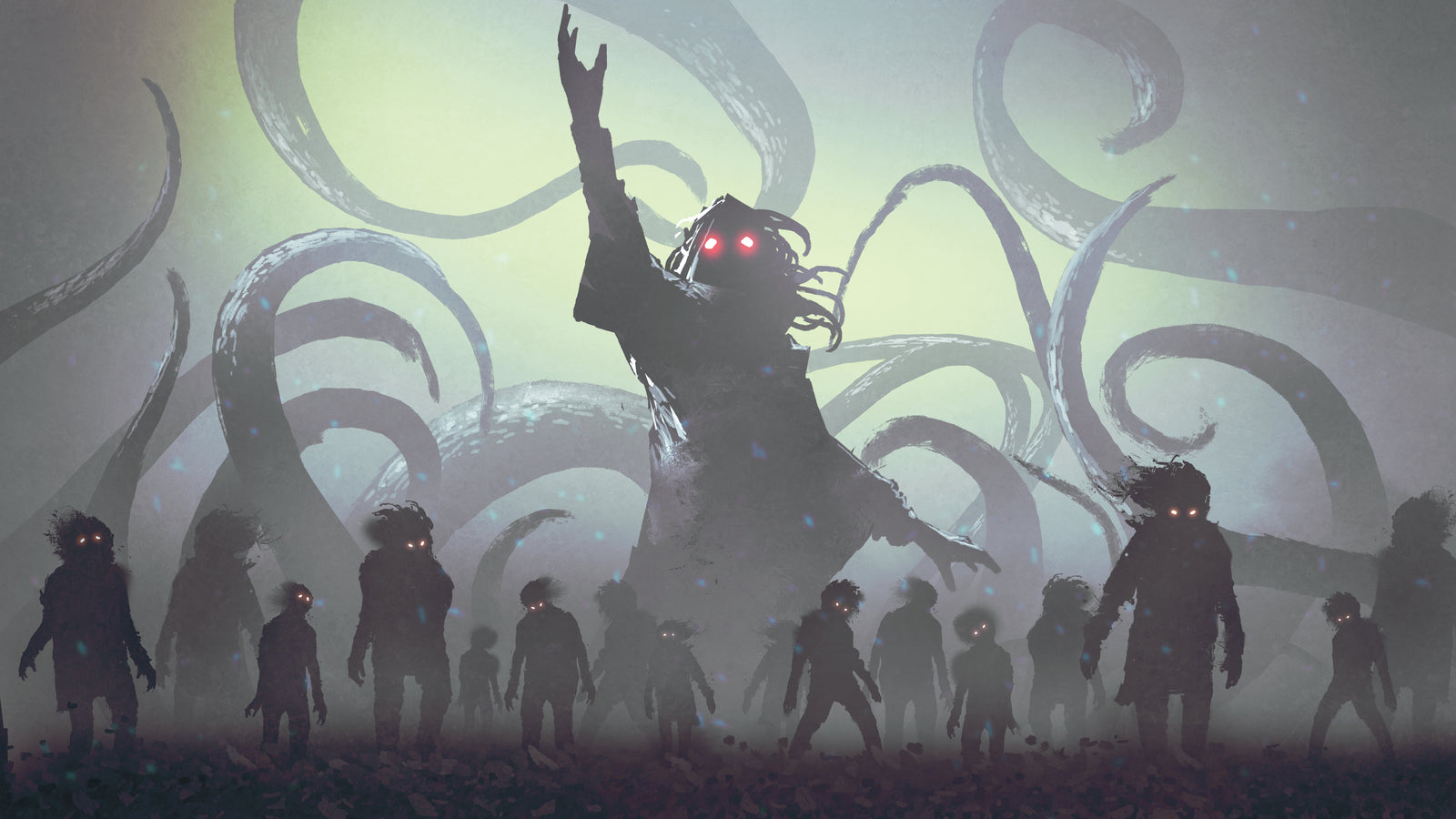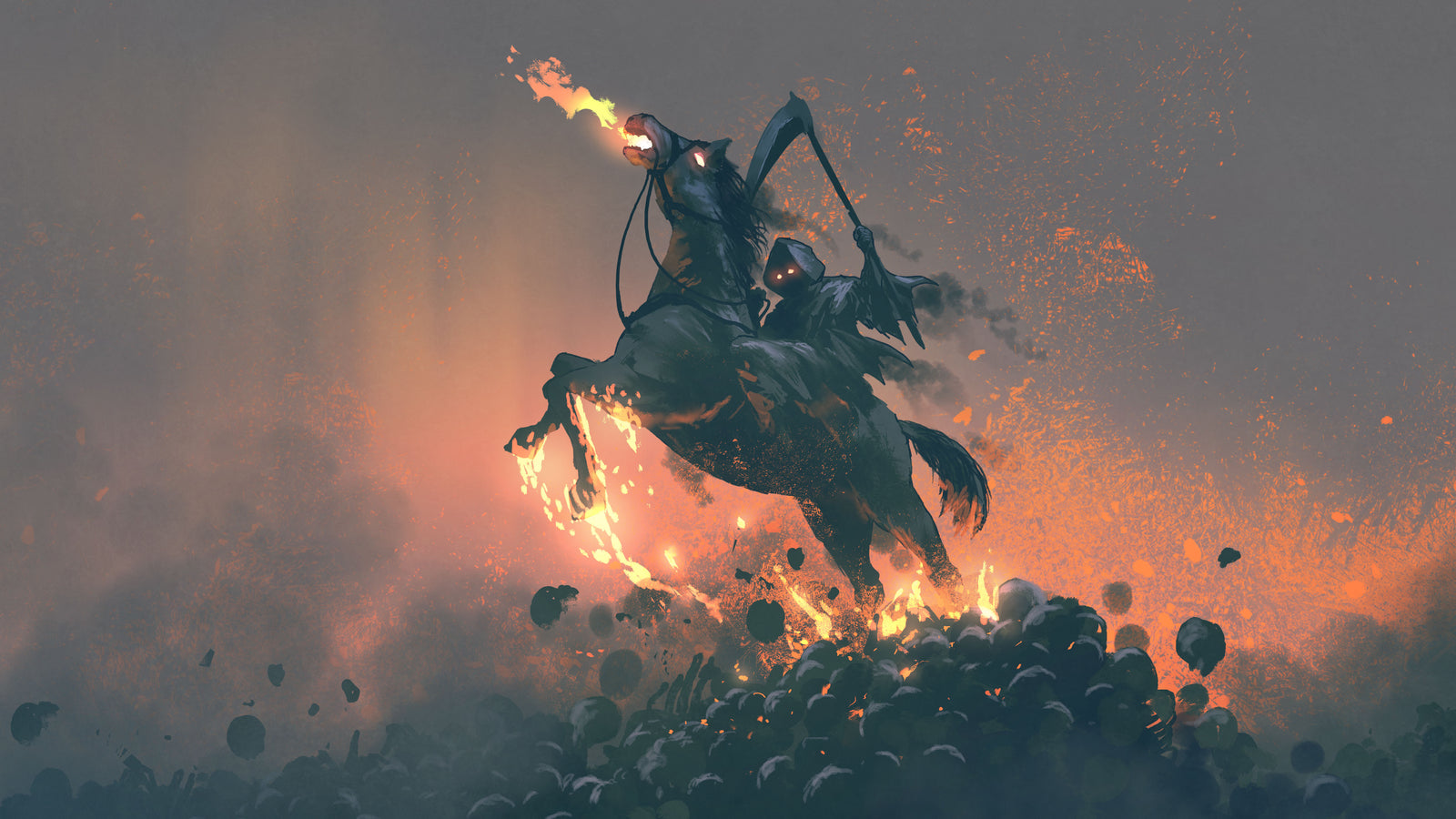Your Cart is Empty

Imagine First, Design Second
May 05, 2021 4 min read
"Imagine first, design second."
One of the web's most notorious adventure reviewers had agreed to talk to me about a project of mine that felt dead in the water. We were halfway through a video call when, out of nowhere, he looked up and told me with oracular clarity that that was the problem with the adventure I was writing.
It seemed like a revelation to both of us at the same time. I blinked in surprise.
"Imagine?" I said. "Like, imagine the space? The combats?"
"All of it," he said. "What you're doing here is designing. And it's not bad, it's just... boring. The adventure itself feels flat."
These were the words I needed to hear. I knew something was off with the writing, but I was struggling to put my finger on it.
The project had other things going for it, thankfully. Strong layout, punchy art, interesting monsters. But good cake ingredients don't always make a good cake.
It began to dawn on me where I had gone wrong. I'd been trying to juggle mechanics, pacing, monster design, space design. And throughout all of it, I had neglected to really imagine the space and sink my teeth into what was exciting about it!
I'd reduced the dungeon to a mechanical series of encounters, traps, fights, and treasure caches. And although it had technical merit for those elements, it didn't actually have thrill, vibe, or color.
"You're right," I groaned. I laughed at how easy the problem was to see in hindsight. "So... how do I fix that?"
This reviewer, who has been called incredibly cruel by people who do not like critique, went on to give me some of the kindest and most thoughtful advice I've ever received.
For the record, if you can't take feedback gracefully (even when it's harsh), you aren't ready to be a publisher. This is a fear we all face, and rather than shrink away from it, you can confront it yourself by seeking out the harshest feedback you can find and learning to separate the trolling from the truth.
After my talk with the reviewer, I had a sense of relief I wasn't expecting. During our conversation, I resolved to continue tinkering with the adventure as a way to hone my writing while also deciding not to publish it.
I thought I'd feel disappointed about putting this one in the "Don't Publish, Ever" drawer, but it was just the opposite; I was ready to jump into new things that sparked my interest and excitement, which this project lacked.
And what advice did the reviewer give me? I'll distill it below, along with my personal observations that line up with what he and I discussed.
Join The Arcane Library's newsletter for a free 1st-level adventure, plus more articles like this one!
How can you detect when you're making the mistakes I did in writing a lifeless adventure? Here are some signs:
1. You can't name at least three things you're excited to write about in your adventure.
2. You sit down to write and can't clearly imagine the space in which the adventure is happening.
3. You feel like you could accomplish the exact same material you're writing by using random dungeon generation tables.
If you run into any of the above dreaded issues, take heart! You can take steps to remedy a lifeless adventure or extricate yourself from the pain. Here's what I ended up doing:
1. Accept that you're going to write some duds once in a while. This is my job, and I still wander down fruitless creative paths on a regular basis. Don't beat yourself up.
2. Consider setting this project aside and starting fresh, or at least rolling back what you have and coming at the adventure from an entirely new angle. Don't do this just because the writing is tough; do it only when your heart isn't in the work.
3. In either case, realize that you need to engage your imagination first, and come at your project brimming with enthusiasm and strong images in your mind. To find that enthusiasm, start a new research cycle:
- Trawl the internet for inspiring images
- Comb through comics, books, adventures, or magazines that engage your mind's eye
- Watch an action-packed movie you love
- Bust out some word-association roll tables (the oft-cited Tome of Adventure Design could inspire countless ideas here)
4. Accept that even with excellent writing, you'll have to do hard work and difficult polishing to get it just right. Still, this should never feel like endlessly pulling teeth. If something is painful to work on, and there is no light at the end of the tunnel, it might be time to move on.
5. Don't write to tropes, genres, or expectations of how something "should be." I went wrong on this with my above failed project. I was writing a more Old School-style adventure, and I thought that meant "simple and straightforward." Wrong! Three giant rats in a rubble-strewn room is not exciting anymore, even if it may have been novel 40+ years ago. We can do better and imagine bigger.
Finally, a few parting words.
- At the risk of sounding like Marie Kondo, adventures that were written without joy lack life and vibrancy. If you don't love what you're writing, why would the reader?
- Designing and mechanics can of course be part of the fun. Fiddling with numbers, counting squares, and tracking the encounter pacing are all engaging puzzles for our designer minds. But what we can't do is game design ourselves out of a weak or bland idea. Populating a room with perfectly balanced monsters and traps won't patch this over.
Before you begin writing, you must see the titanic, black-glass mountain towering overhead like a rearing leviathan. You must smell the sultry jungle mist, redolent with flowers and the stench of nearby corpses. You must feel the rat bones pop beneath your boots as you stalk across the damp flagstone into the vine-draped halls of the monkey god.
Only then are you ready to add a Dex save to avoid falling into a 10-foot deep pit trap.
Imagine first, design second.
Header art by Tithi Luadthong / shutterstock.com
Also in Arcane Articles

How To Design Exciting D&D Encounters
November 08, 2022 6 min read
Encounters are one of the most important parts of Dungeons & Dragons. So how do we make sure we're designing good ones?
Read More
How to Write A D&D Adventure: The Complete Guide
October 21, 2021 14 min read 6 Comments
So you want to write a 5E D&D adventure? Read on for the step-by-step process I've developed over the years for writing an action-packed D&D adventure with as little friction as possible.
Read More
Milestone Leveling vs. XP Leveling: Which is Better?
March 02, 2021 5 min read 1 Comment
The age-old debate of milestone leveling vs. XP leveling! Which one is better? Here we look at the pros and cons of both, plus an entirely new system that blends what I like about each method.
Read More
